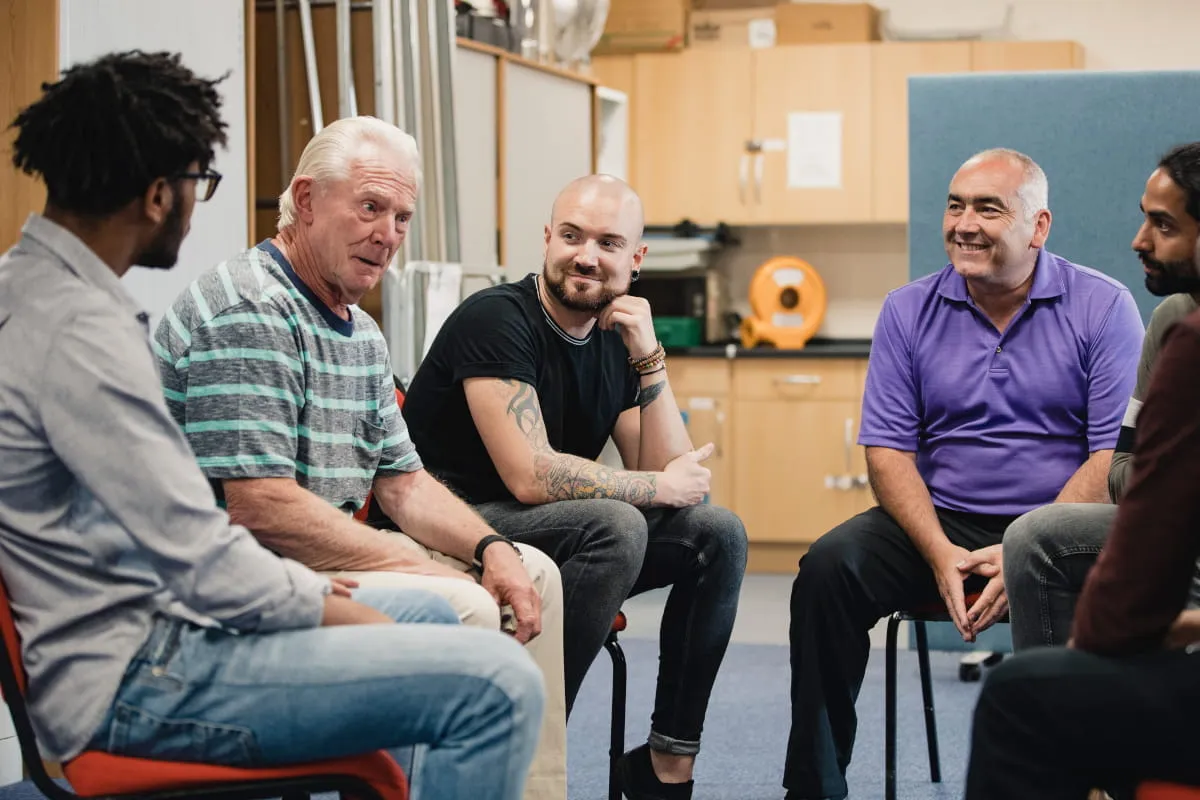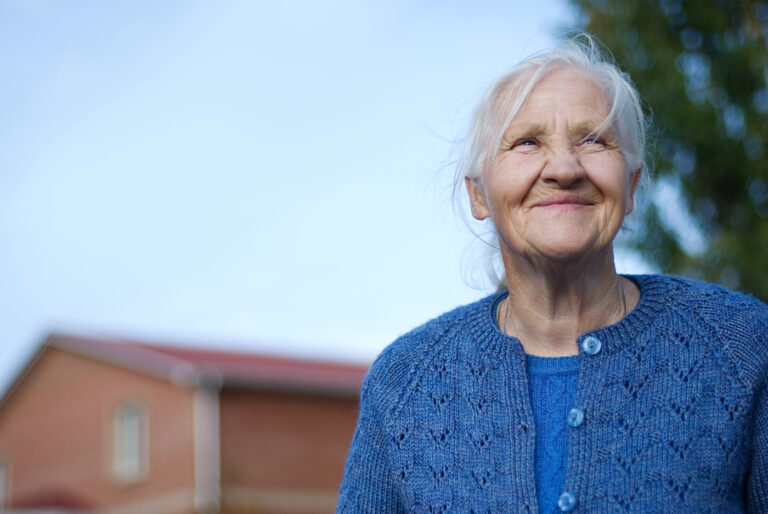Redefining Masculinity in Mental Health,
For far too long, the rigid confines of traditional masculinity have created barriers for men seeking support with mental health concerns.
The old notion that strength equates to silence about one’s struggles has perpetuated a culture where emotional vulnerability is often stigmatized, leaving many men to navigate the choppy waters of mental well-being alone.
As we peel back the layers of stereotypes, it becomes clear that redefining masculinity to include honest dialogues about mental health is not only necessary but also a vital aspect of holistic wellness.
Through the collaborative efforts of psychology, public discourse, and personal courage, we are witnessing the emergence of a new perspective where masculinity and mental health walk hand in hand.
In this article, we chart the path towards a more inclusive and supportive outlook on masculinity and mental wellness.
Key Takeaways
- Traditional Masculinity That Discourages Emotional Expression Is Shifting Towards a More Open and Supportive Understanding of Men’s Mental Health
- Mental Health Discussion and Support for Men Are Becoming More Accessible and Tailored to Their Needs Through Support Groups and Digital Platforms
- Mental Health Professionals Must Create a Judgment-Free and Culturally Sensitive Space for Men to Discuss and Address Their Mental Wellness
- Physical Health Practices Such as Regular Exercise and Nutrition Are Being Integrated With Mental Health to Promote a Holistic Approach to Men’s Wellness
- Public Figures and Community Leaders Are Increasingly Advocating for Men to Embrace Vulnerability and Seek Support as Signs of Strength and Resilience
The Evolution of Masculinity and Mental Health
Delving into the intricacies of masculinity, I’ve observed a remarkable transformation echoing throughout the corridors of society’s structure.
The once rigid expectations, confining men to a stereotype of emotional fortitude and silent resilience, are morphing, compelling us to explore the deep-seated implications on mental wellness.
As a physician attuned to the psychological undercurrents of my patients, I’ve witnessed the adverse impact that traditional masculinity can impose, often exacerbating health problems rooted in stigma and subdued vulnerability.
It’s a journey that is gradually shedding its stoic skin, encouraging a paradigm shift from guarded silence to a healthier narrative of openness, where psychology and social norms converge to redefine what it means to be strong.
Tracing the Changes in Societal Expectations
Gazing back at the path culture has trodden, I can pinpoint a discernible shift in the tapestry of masculinity that surrounds mental health. Where once a fortress of stoicism stood, a new understanding now bridges the gap between male identity and the permission to seek help:
- Historically, men were often indoctrinated with the belief that expressing emotion or admitting psychological struggle was antithetical to manhood, setting a dangerous precedent for suppression and isolation.
- Through the tireless efforts of pioneers in mental health promotion, advocacy from organizations like the National Alliance on Mental Illness, and the evolving dialogue within communities, these expectations are being transmuted into a more inclusive and open model.
The stigma of yesteryear, while not completely eradicated, finds itself increasingly challenged by new norms that prioritize mental well-being and recognize the complex interplay between gender, emotion, and health. Progressive shifts in policy, education, and public discourse continue to foment an environment where silence is no longer the default response to psychological pain.
Examining the Impact of Traditional Masculinity on Mental Wellness
In my practice, I have seen how the unwritten codes of traditional masculinity can be a straightjacket for men’s emotional expression, leading to an uptick in unaddressed psychological issues. The inability to showcase vulnerability often becomes a breeding ground for disorders ranging from anxiety to depression, both of which can remain unspoken and untreated, festering in the shadow of a man’s psyche.
The impact is further complicated by the fact that many male patients struggle with the dual challenges of acknowledging their mental health needs and navigating the healthcare system to address them. This often results in a troubling delay in seeking care, which could exacerbate underlying health problems:
- Lingering cultural taboos around men seeking therapy can dissuade them from reaching out to a mental health professional when symptoms first arise.
- A lack of targeted health promotion strategies for men contributes to less awareness and engagement with preventive and early intervention services.
- The societal expectation for men to prioritize work and productivity over wellness can prevent them from taking the necessary time for mental health care and self-care practices.
The Journey From Stoicism to Openness
Embarking on this transformative journey, I’ve seen men tear down the walls of stoicism and replace them with bridges of communication and self-awareness. Peeling back the layers of a hardened exterior, men are learning that strength also lies in the courage to share one’s struggles and seek out support.
In my day-to-day interactions within the clinic, the shift is palpable as men increasingly embrace their mental health as an integral part of their overall wellness paradigm. Emotion, once a perceived adversary, is now becoming an ally in their journey toward a balanced and robust mental state.
Breaking Down Stereotypes: Men and Emotional Vulnerability
In my conversations with men from all walks of life, I’ve come to recognize the insidious myths that fortify the antiquated bastion of male emotional fortitude.
Far from the immutable truths many have been led to believe, the societal constructs of masculinity often distort rather than define genuine strength.
As I explore this nuanced terrain, stories of vulnerability unfurl themselves, revealing not weakness, but a profound source of power that challenges and reshapes our understanding of resilience.
Acknowledging and fostering this emotional openness is more than a personal endeavor; it’s a collective responsibility that begins in our communities and families, nurturing a culture where men can authentically express and cope with their feelings without fear of judgment or reprisal.
The Myths of Male Emotional Strength
The persistent belief that emotional strength equates to emotional silence has shadowed many of my conversations with men grappling with mental distress. This myth, woven into the fabric of their upbringing and solidified by societal affirmations, has led numerous individuals to conceal their struggles, viewing this self-imposed isolation as a hallmark of masculinity.
In my role as a mental health professional, dismantling this falsehood has become a central aspect of my practice. It is crucial to affirm that emotional receptivity and the ability to express vulnerability are not antithetical to strength but rather fundamental components of a resilient and adaptive psyche.
Stories of Vulnerability as a Source of Power
Encounters with men who have dared to be vulnerable have illuminated their stories as beacons of empowerment. Rather than diminishing their presence, these honest narratives foster a profound inner strength that redefines the very essence of masculinity.
The embrace of vulnerability is not just a personal victory but a collective breakthrough, fortifying connections and dismantling the walls of isolation that once obstructed true understanding and support:
Encouraging Openness in Communities and Families
In the heart of our communities, we are witnessing a compelling movement: families are gradually dismantling the outdated molds of masculinity. It’s a transformative process where encouragement to articulate emotions is not merely accepted but celebrated as an embodiment of true familial strength.
This unfolding narrative within intimate circles resonates with a larger call to action: foster environments where personal hardships are met with solidarity, not silence. By doing so, we redefine the legacy we leave for future generations, painting a new portrait of well-being that marries masculinity with the freedom of emotional expression.
- Communities and families are pivotal arenas where we can counteract the antiquated norms of masculinity.
- Creating spaces that honor open communication and emotional vulnerability can reshape the societal narrative surrounding men’s mental health.
- In redefining these concepts, we construct a legacy that empowers men to embrace their mental well-being without the weight of outdated expectations and misconceptions.
Mental Health Support Systems Tailored for Men
In my continuing exploration of the evolving landscape of masculinity and mental health, I am increasingly heartened by the proliferation and accessibility of tailored support systems for men.
The Role of Support Groups in Redefining Masculinity, Online Platforms and Resources for Men’s Mental Health, and Essential Qualities of a Supportive Mental Health Professional for Men are pillars I see as central to this evolution.
These resources serve as vital conduits through which men can redefine their strength, not in isolation but in community, with professionals who understand their unique journey.
Bringing these elements together, we forge a new path forward—one where men are equipped with the necessary tools to navigate their psychological terrain with openness and authenticity.
The Role of Support Groups in Redefining Masculinity
In my years as a mental health counselor, I’ve realized the transformative power of support groups in redefining masculinity. These gatherings provide a sanctuary where the traditional masks of masculinity can be laid down, fostering a nurturing environment where men can voice their vulnerabilities and learn from the collective wisdom of shared experiences.
Encouraging attendance at these gatherings, I’ve seen firsthand the shift in my patients as they gradually understand that their emotional wellness does not undermine, but rather bolsters, their masculinity. The camaraderie found in support groups often sparks a renaissance of self-compassion and mutual understanding that can redefine a man’s identity far beyond societal expectations.
Online Platforms and Resources for Men’s Mental Health
In this digital age, men’s access to mental health resources has expanded exponentially, thanks in part to a surge in online platforms that cater specifically to their psychological needs. From virtual therapy sessions facilitated by Better Help Therapy to targeted content exploring masculine identity and emotional well-being, these virtual havens provide anonymity and convenience for those still wading through the waters of acceptance and vulnerability.
Recognizing the distinct styles in which men often communicate and process their emotional experiences, these online resources implement approaches that resonate deeply with their audience. Websites and applications blend technology with psychology, offering engaging tools such as mood trackers, stress management modules, and meditation guides—all uniquely tailored to support men’s mental health journeys from the comfort and privacy of their own devices.
Essential Qualities of a Supportive Mental Health Professional for Men
In my professional experience, a supportive mental health professional for men must embody empathetic listening and affirm the legitimate concerns of their patients while also challenging unhelpful patterns of thought. This delicate balance requires a nuanced understanding of the intersection between cultural constructs of masculinity and individual psychological experiences.,
It’s paramount that these professionals foster a judgment-free space where traditional gender roles can be safely explored and redefined. They need to apply insight and sensitivity as they address the unique barriers men may face when confronting and expressing emotional challenges.:
Strategies for Men to Cultivate Emotional Resilience
In navigating the ever-evolving discourse on masculinity and mental health, we uncover an essential truth: emotional resilience is not innate—it’s cultivated.
As men break free from tradition-bound shackles, they’re actively embracing techniques for managing stress and anxiety with a vigor that rewrites their narrative of strength.
Empathy and emotional intelligence emerge as cornerstones of this transformation, crucial for fostering deep interpersonal connections and self-understanding.
Moreover, resilience is being built not just in the mind but also through the body, with an increased focus on physical activity and mindfulness as essential pillars of a holistic approach to wellness.
These proactive strategies stand as a testament to the new era where men’s mental health is nurtured through a blend of introspection, connectivity, and a dynamic balance between psychological and physical well-being.
Techniques for Managing Stress and Anxiety
In my practice, guiding men through the labyrinth of stress and anxiety often involves equipping them with tools such as cognitive-behavioral therapy (CBT) and mindfulness meditation. These techniques empower them to confront and dismantle the cyclone of worrisome thoughts, fostering a sense of control and emotional agility amidst life’s inevitable upheavals.
I encourage my patients to establish a routine centered around self-care, emphasizing the importance of adequate sleep, a healthy diet, and regular exercise as foundations for mitigating anxiety. By prioritizing these pillars of health, they strengthen their capacity to withstand stress and cultivate a resilience that permeates every facet of their existence.
The Importance of Emotional Intelligence and Empathy
The cultivation of emotional intelligence and empathy is integral in my mission to help men forge a healthier relationship with their mental well-being. These attributes are the keystone in understanding oneself and others, allowing for compassionate exchanges that can significantly diminish the loneliness often associated with mental struggles.
Acknowledging the pain and perspectives of those around us emboldens our community bonds and self-awareness. As men, fostering these qualities not only enriches our personal lives but also influences our broader societal interactions with positive ripple effects:
- Emotional intelligence enables men to navigate the complexities of interpersonal relationships with greater confidence and less conflict.
- Empathy encourages a nurturing environment where support is reciprocated, reinforcing the idea that seeking help is a sign of wisdom, not weakness.
Building Resilience Through Physical Activity and Mindfulness
The interplay between the kinetic rhythm of physical activity and the serene focus of mindfulness composes a symphony of resilience for men navigating the precipitous terrain of mental health. Engaging in exercise not only remolds the body but also empowers the mind, catalyzing the release of energy blockages that give way to a refreshed sense of purpose and poise.
My sessions often end with an emphasis on mindfulness as a powerful tool for mental fortification, inviting men to carve out moments of quiet introspection within their daily hustle. This practice of present-moment awareness cultivates an equilibrium, harmonizing the cacophony of external demands with inner serenity, ushering in a newfound resilience to life’s unpredictable symphony.
Engaging Men in Mental Health Conversations
Stepping into the often-unspoken dialogue about men and mental health, I advocate for a proactive stance on dismantling the stigma that shackles the male psyche.
As we tread further down this path, it becomes clear that change is a collective endeavor.
Platforms and initiatives are emerging, illuminating the nuances of men’s mental health and ensuring that my role—whether as a friend, family member, or mental health professional—encompasses facilitating open communication.
It’s about connecting with intention and understanding how to broach sensitive topics with compassion and insight.
The question isn’t merely about why these dialogues are necessary; it’s about charting the practical steps we all can take to normalize mental health discussions in every man’s life, signaling a change rooted in empathy and informed awareness.
Removing the Stigma From Men’s Mental Health Discussions
As a mental health professional, I’ve observed the transformative power of actively dismantling the stigma associated with men’s mental health discussions. It is paramount to create a collective narrative that redefines seeking help not as a sign of weakness but as an act of self-awareness and intrinsic strength.
This redefinition requires a concerted effort to address and dispel misconceptions: the journey is dynamic, demanding ongoing conversation and the implementation of strategies that reshape public perception.
- Facilitating educational campaigns that highlight the prevalence and normalcy of mental health issues among men.
- Encouraging personal testimonials from male leaders in various sectors who advocate for mental well-being.
- Implementing regular mental health workshops in workplaces that reframe the conversation in a relatable and empowering context.
Through these actions, we pave the way for an inclusive society where the mental health of men is no longer shrouded in unwarranted shame but is approached with compassion and understanding. My commitment to this cause is unwavering, as I dedicate my practice to nurturing a culture where men can openly share their stories and seek support without reservation.
Platforms and Initiatives Making a Difference
In my advocacy and research, I’ve been particularly inspired by the innovative strides certain platforms are taking to bring mental health to the forefront for men. The emergence of forums and social media campaigns specifically designed for men’s mental health discussions has empowered numerous individuals to break their silence, fostering a community of shared experiences and collective healing.
Initiatives such as Movember and the HeadsUpGuys project have played a crucial role in reframing mental health for men, combining medical expertise with relatable stories and accessible online guidance. These endeavors resonate deeply with my patients and peers, witnessing a positive turn in attitudes as they tap into a wealth of supportive resources and information that once seemed elusive.
How to Start the Conversation: Tips for Families and Friends
Starting the conversation about mental health with men can often feel like navigating uncharted waters, but it’s a discourse that can significantly alter their quality of life. It’s essential, to begin with a foundation of empathy and patience, recognizing that each individual will have their level of comfort when discussing these topics.
In my approach, whether as a mental health professional or as an advocate, I make it a priority to ensure that conversations are initiated in a non-threatening and supportive environment. This involves choosing a private and calm setting, where open dialogues can take place without the pressure of judgment or immediate solutions.
The Future of Masculinity: Integrating Wellness Into Identity
The landscape of masculinity is undergoing profound changes, casting aside antiquated notions and embracing a future where mental health is a crucial component of the male identity.
Envisioning a new paradigm for masculinity and mental health requires a fundamental overhaul of deep-seated beliefs, shifting towards a society that values emotional intelligence just as much as physical strength.
Leading figures from various walks of life are emerging as powerful advocates for this transformative movement, demonstrating that vulnerability isn’t an antonym for masculinity, but a defining attribute of it.
By promoting holistic health that includes mental, physical, and emotional well-being, we solidify it as the cornerstone of a modern conception of manhood.
The recognition of this intersectionality paves the way for an era where men are encouraged to cultivate a balanced identity with wellness at its core.
Envisioning a New Paradigm for Masculinity and Mental Health
As we stand on the brink of a cultural renaissance, the new paradigm for masculinity and mental health is one where emotional fortitude is synonymous with the ability to be introspective and interpersonally attuned. It redefines strength, not as the absence of struggle, but as the presence of resilience and the willingness to engage with one’s own vulnerabilities.
In this envisioned future, men’s mental health is not an isolated concern but an integral part of our social fabric, where community support systems and personal well-being practices are viewed as vital for a prosperous life. Embracing this holistic approach, men will see seeking help as a step toward empowerment, ingraining wellness in their very definition of what it means to be masculine:
Role Models and Leading Figures in the Movement Towards Change
Stepping into the limelight, key figures from diverse fields have begun to champion the cause of intertwining masculinity with holistic mental health, accelerating a cultural metamorphosis. Their advocacy shines a spotlight on the strength inherent in seeking psychological support, challenging and transforming dated perceptions of maleness with every story they share and every barrier they dismantle.
My appreciation for these role models deepens as I observe their impact on patients who draw inspiration from their courage, allowing themselves to become part of this groundbreaking narrative. Witnessing this fusion of public vulnerability and leadership shapes my perspective on the profound potential for positive change in the wellness journeys of men everywhere.
Promoting Holistic Health as a Cornerstone of Modern Masculinity
In my relentless pursuit of integrating wellness into the modern masculine identity, I advocate for a holistic approach that intertwines physical, mental, and emotional health. It’s a call to redefine strength, where self-care is as manly as endurance, positioning mindfulness, nutrition, and regular health check-ups alongside the traditional muscle and grit.
By fostering this inclusive view of well-being, I encourage men to view their health as a multifaceted gem, needing attention from all angles to truly shine. This not only cultivates a more balanced life but also challenges the deep-seated misapprehension that acknowledging one’s mental and emotional needs diminishes masculinity.
Conclusion
Redefining masculinity in mental health illuminates a future where societal norms no longer equate emotional strength with silence but with the courage to express vulnerability and seek help.
As communities and health professionals embrace this shift, tailored support systems are vital in fostering self-understanding and emotional intelligence among men.
By challenging outdated stereotypes, men are encouraged to integrate wellness practices into their identities, promoting a holistic approach to health that values emotional resilience as a key aspect of modern masculinity.
This transformative narrative opens the door to a more inclusive and supportive environment where mental well-being is a fundamental part of every man’s life journey, providing resources for assisted living for mentally ill in Abilene, and ensuring they receive the care and assistance they need to thrive.





